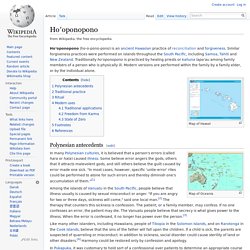

Tips for Breaking Bad Habits and Developing Good Habits. Most of life is habitual. You do the same things you did yesterday, the day before and every day for the last month. It’s estimated that out of every 11,000 signals we receive from our senses, our brain only consciously processes 40. Habits, good or bad, make you who you are. The key is controlling them. If you know how to change your habits, then even a small effort can create big changes. I’ve been using these techniques for years to re-engineer many aspects of my life. Here are some tips to get you started: One Habit For 30 Days – Steve Pavlina, popularized the 30 Day Trial. Use a Trigger – A trigger is a short ritual you perform before a habit. Replace Lost Needs – If you opened up your computer and started removing hardware, what would happen. One Habit at a Time – A month may seem like a long time to focus on only one change, but I’ve found trying to change more than a few habits at a time to be reckless.
Write it Down – Don’t leave commitments in your brain. Image by acqyr.
Hoʻoponopono. Hoʻoponopono (ho-o-pono-pono) is an ancient Hawaiian practice of reconciliation and forgiveness.

Similar forgiveness practices were performed on islands throughout the South Pacific, including Samoa, Tahiti and New Zealand. Traditionally hoʻoponopono is practiced by healing priests or kahuna lapaʻau among family members of a person who is physically ill. Modern versions are performed within the family by a family elder, or by the individual alone. Polynesian antecedents[edit] In many Polynesian cultures, it is believed that a person's errors (called hara or hala) caused illness.
Among the islands of Vanuatu in the South Pacific, people believe that illness usually is caused by sexual misconduct or anger. Like many other islanders, including Hawaiians, people of Tikopia in the Solomon Islands, and on Rarotonga in the Cook Islands, believe that the sins of the father will fall upon the children. Traditional practice[edit] A lei made from the fruit of the hala or pandanus tree.
Ritual[edit] Ancient Hawaiian forgiveness ceremony used for modern healing. One peek at Hawaii's natural landscape, with its spectacular beaches, breathtaking mountain ranges and lush greenery, makes it easy to see why visitors flock to the islands in search of relaxation.

But beyond the exterior of this Pacific paradise lies an ancient tradition that also inspires internal peace and psychological well-being. Ho'oponopono, which stems from the words ho'o ("to make") and pono ("right"), is an indigenous Hawaiian forgiveness process that involves letting go of all resentment and clearing out preconceptions about others. The system flourished in isolation before outsiders came to the islands and became a deeply integrated way of life, as locals recognized that harbouring resentment against others only ended up hurting the person who couldn't let go. "When the first Westerners got here, many of them wrote in their journals that they'd found a group of people who were almost devoid of any mental or physiological disease," says Dr.